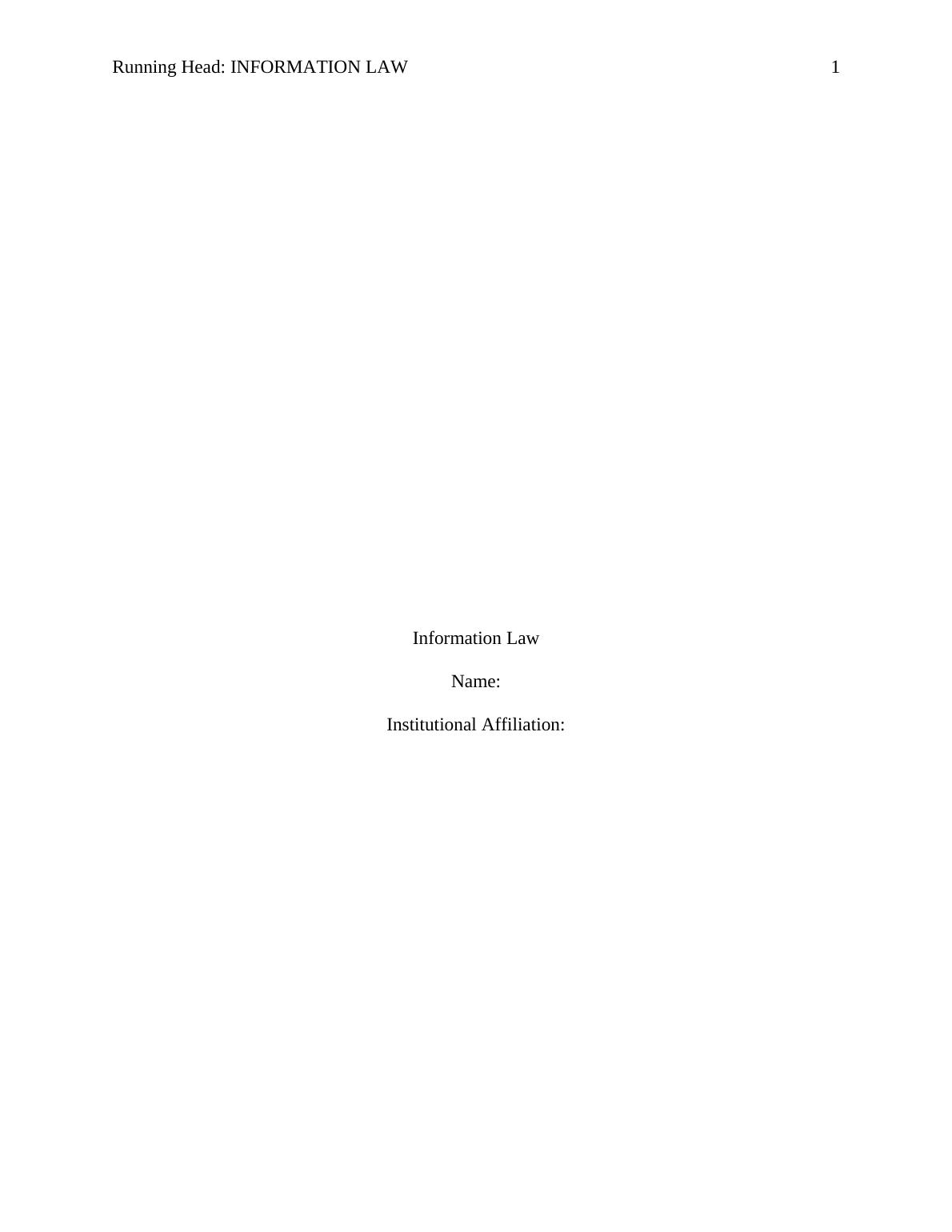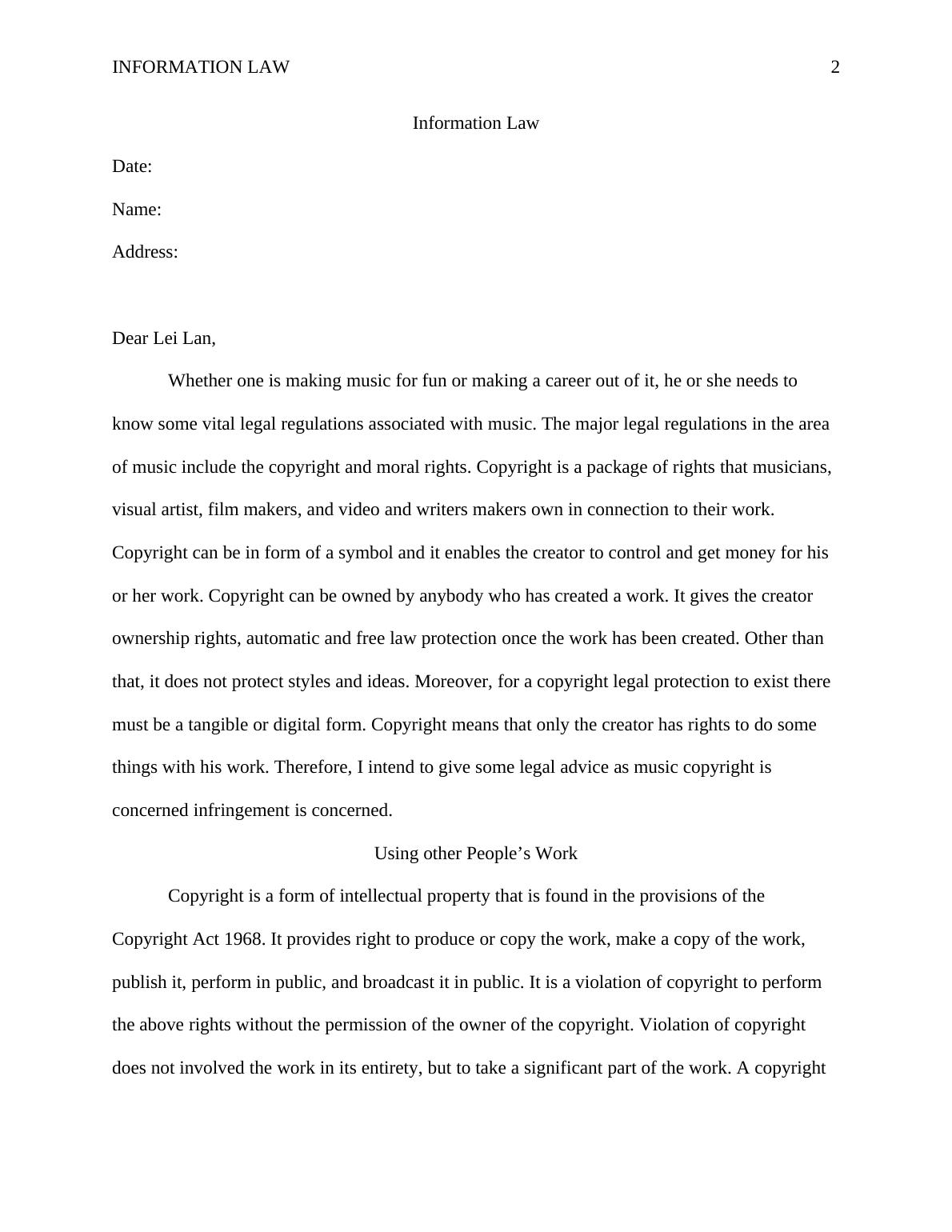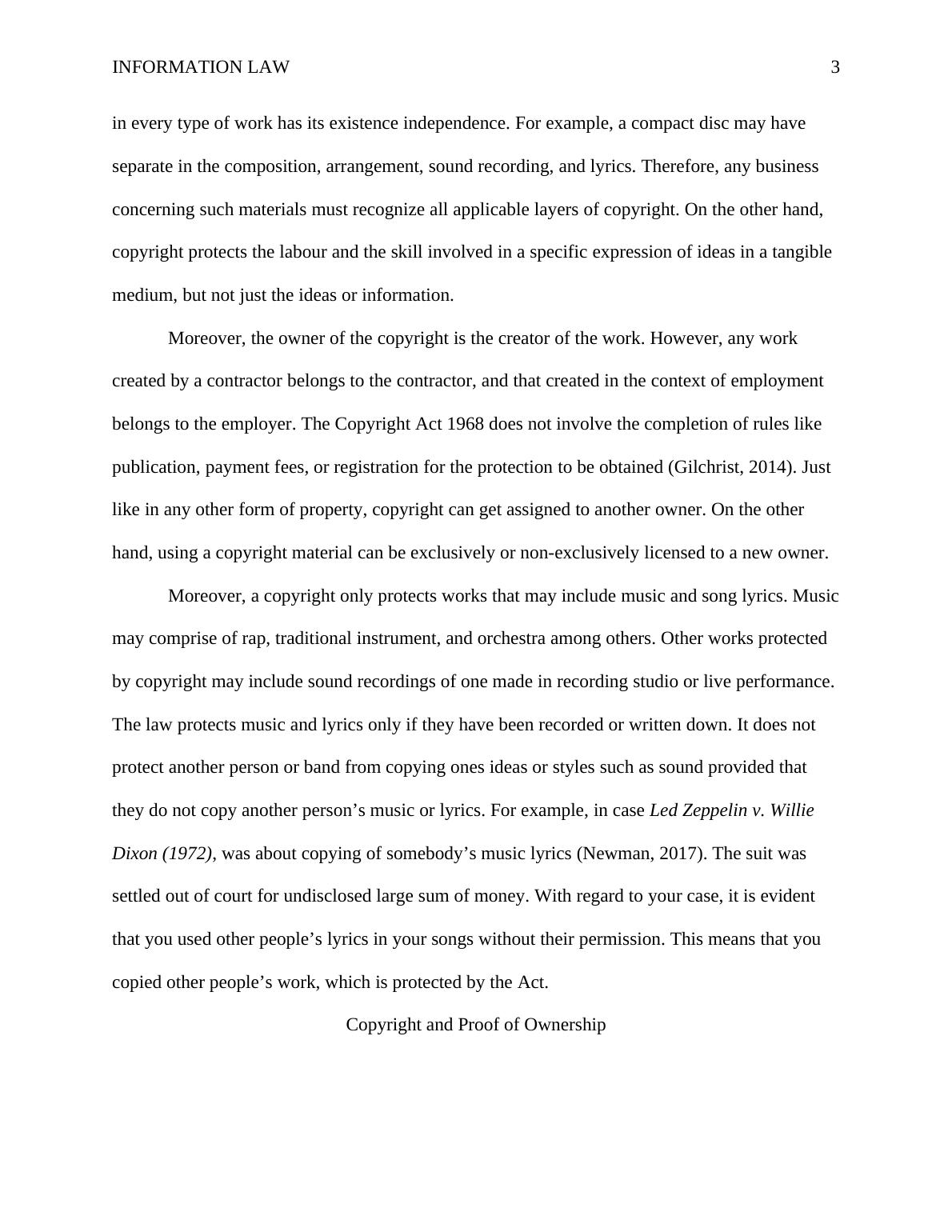Understanding Copyright and Legal Regulations in Music Industry
9 Pages2700 Words483 Views
Added on 2023-06-05
About This Document
This article discusses the importance of copyright and legal regulations in the music industry. It covers topics such as copyright ownership, infringement, proof of ownership, and remedies for infringement. The article also provides legal advice on how to protect your work and avoid copyright infringement.
Understanding Copyright and Legal Regulations in Music Industry
Added on 2023-06-05
ShareRelated Documents
End of preview
Want to access all the pages? Upload your documents or become a member.
Copyright Law and Protection in Australia
|12
|3114
|73
Recordings Copyright Act 1968 Essay
|8
|1861
|259
Legal Advice on Copyright Infringement and Libel Action
|7
|2396
|280
Business Law Case Study (Solved)
|10
|2357
|43
Intellectual Property Law Australia Discussion 2022
|9
|1720
|11
Music copyright Assignment PDF
|17
|1374
|515



